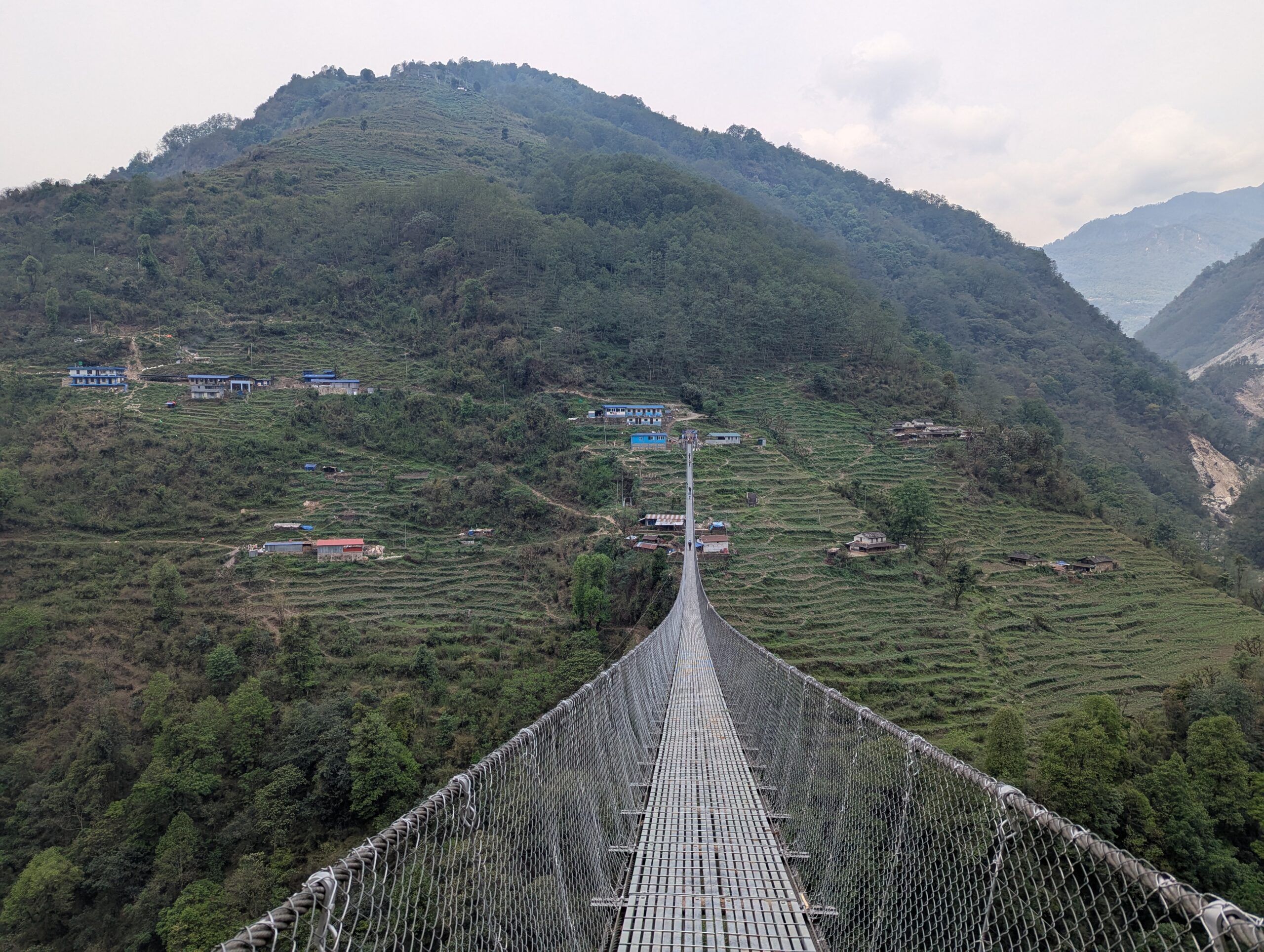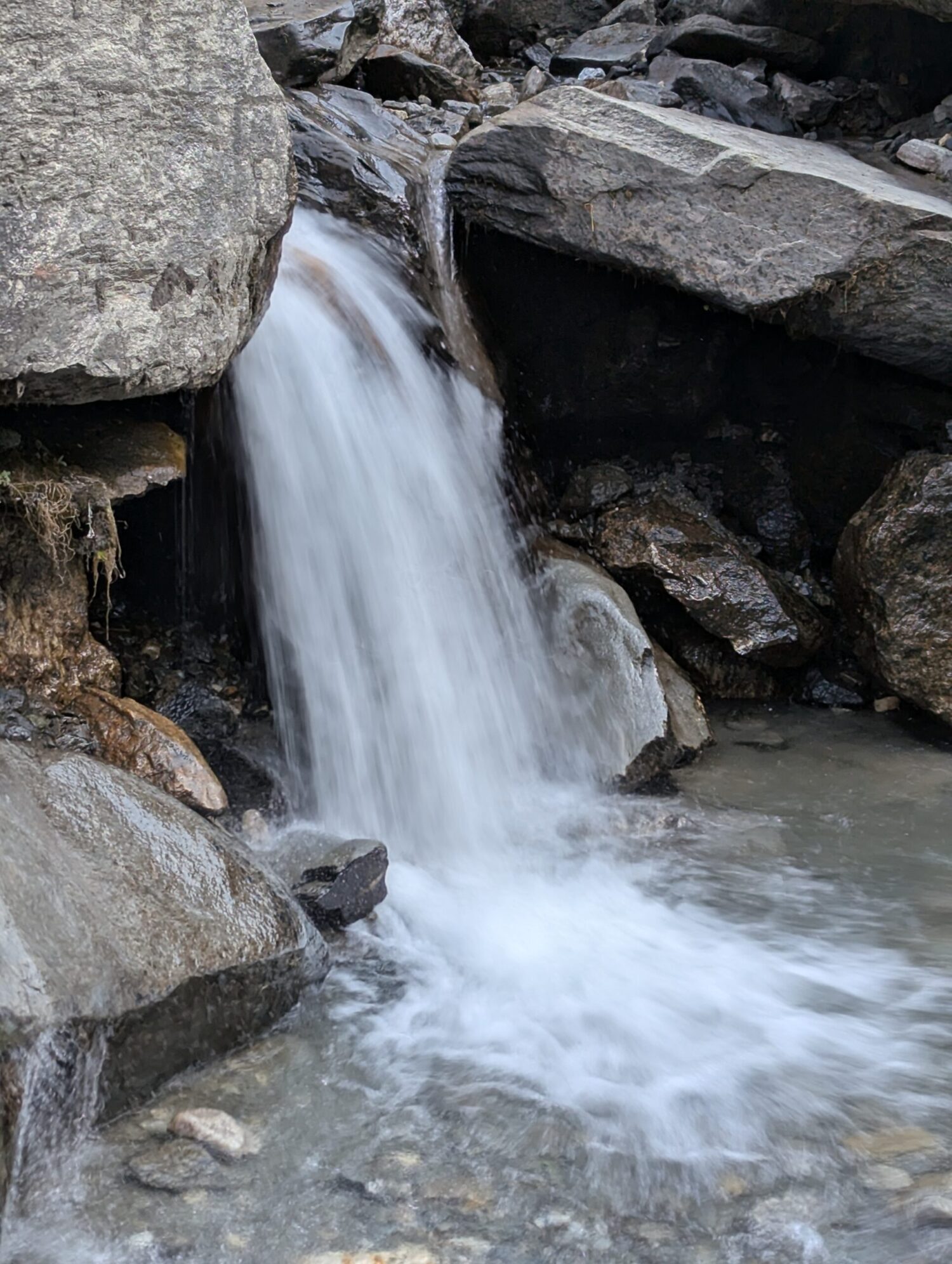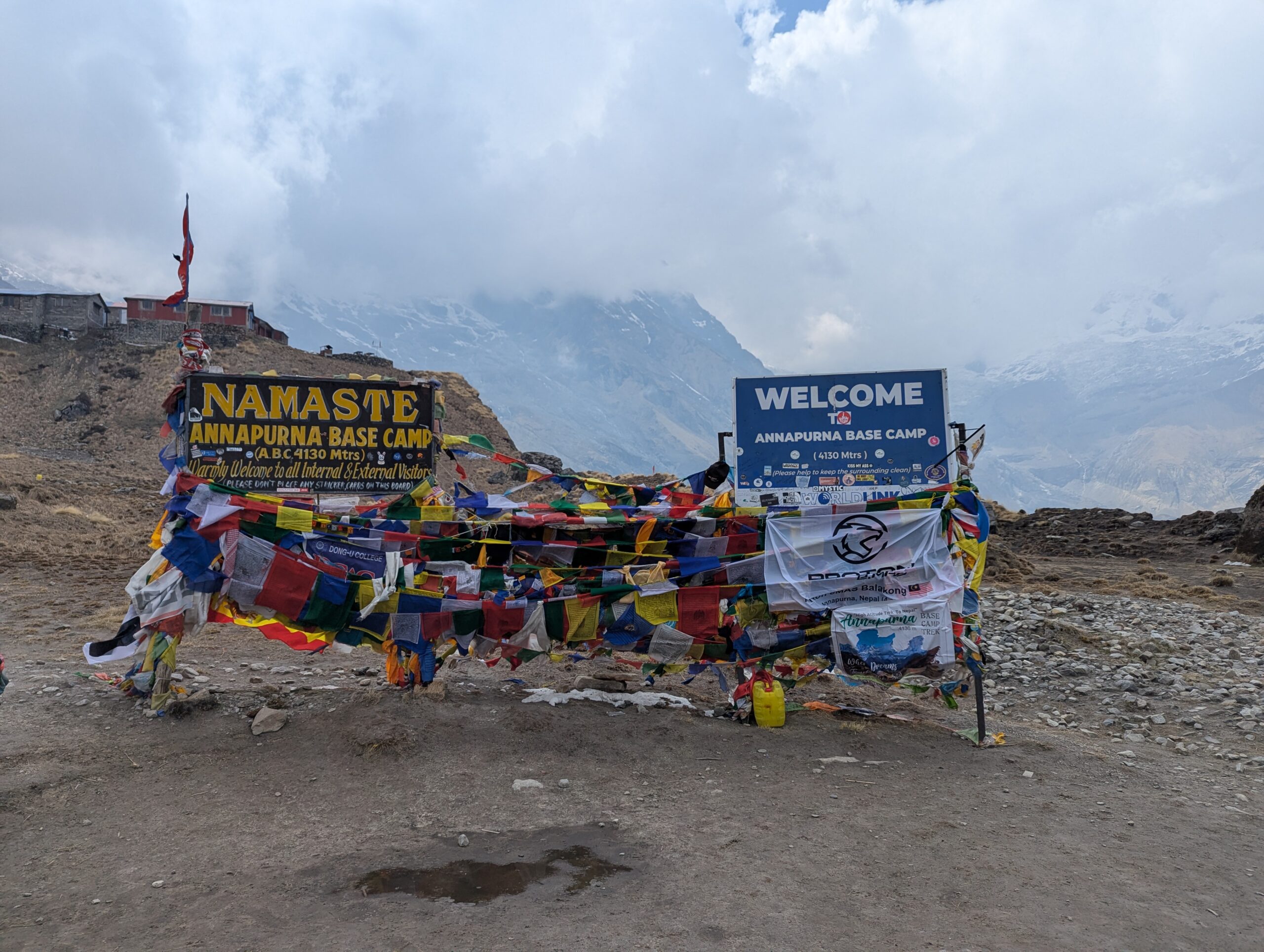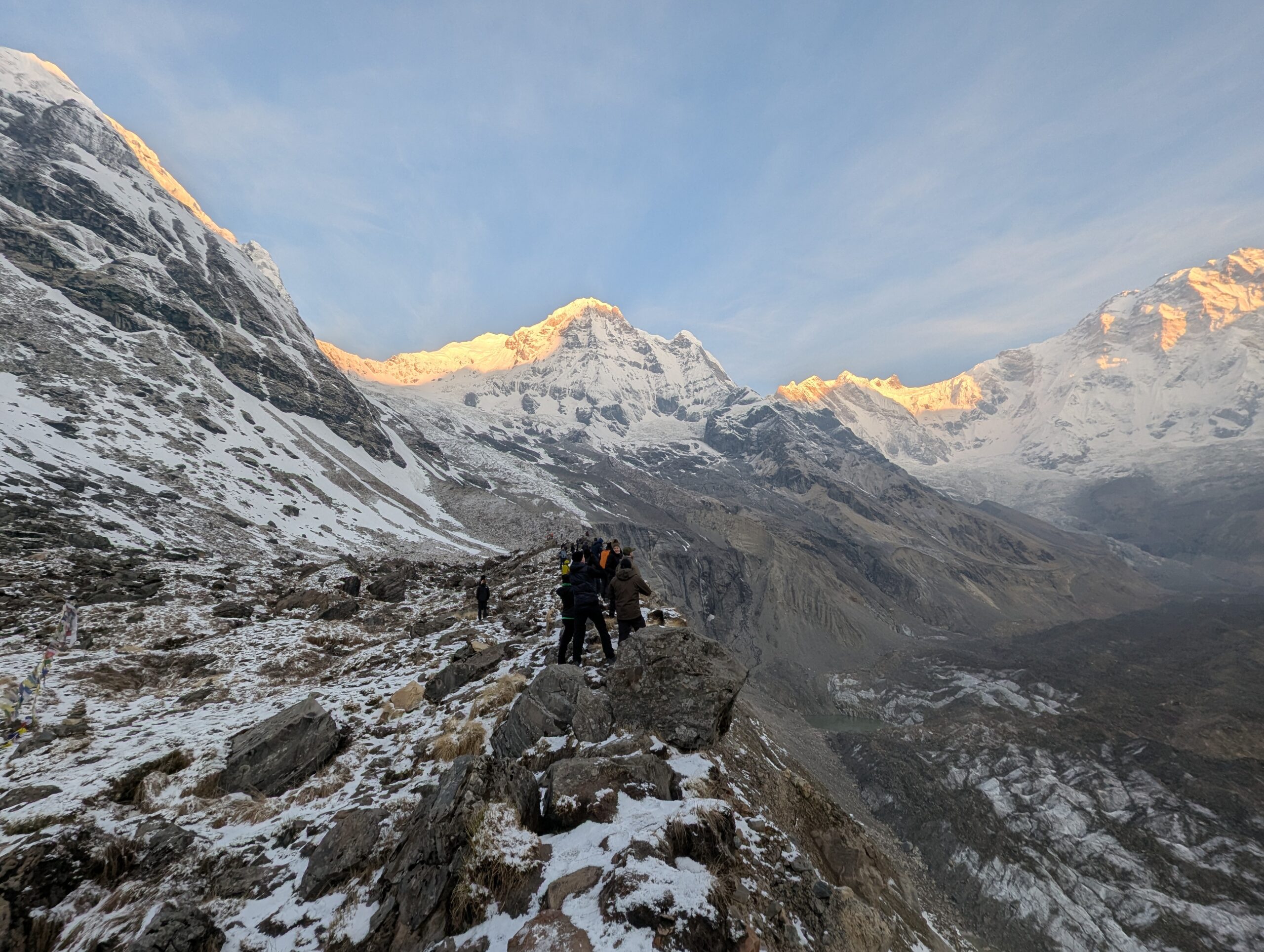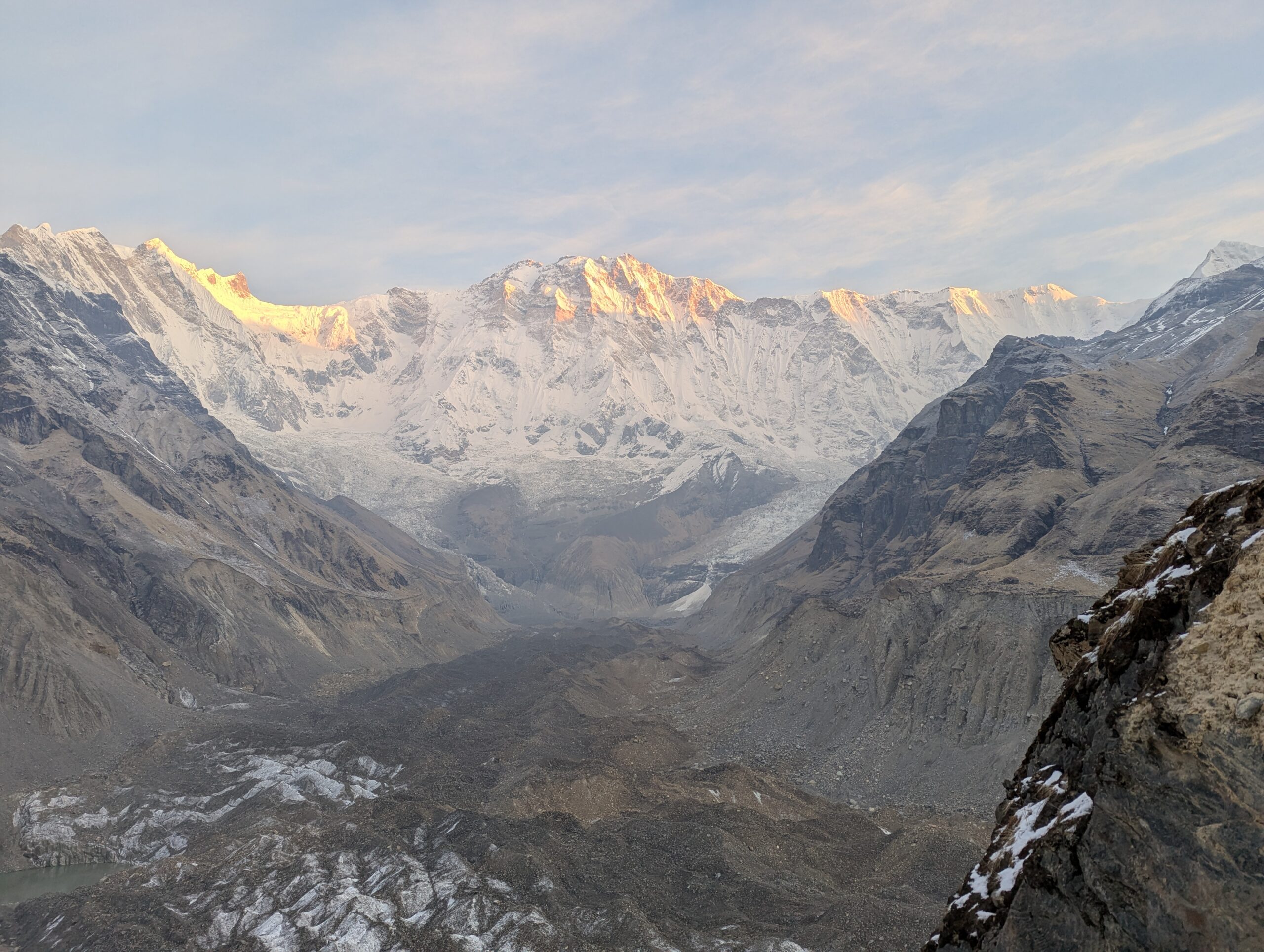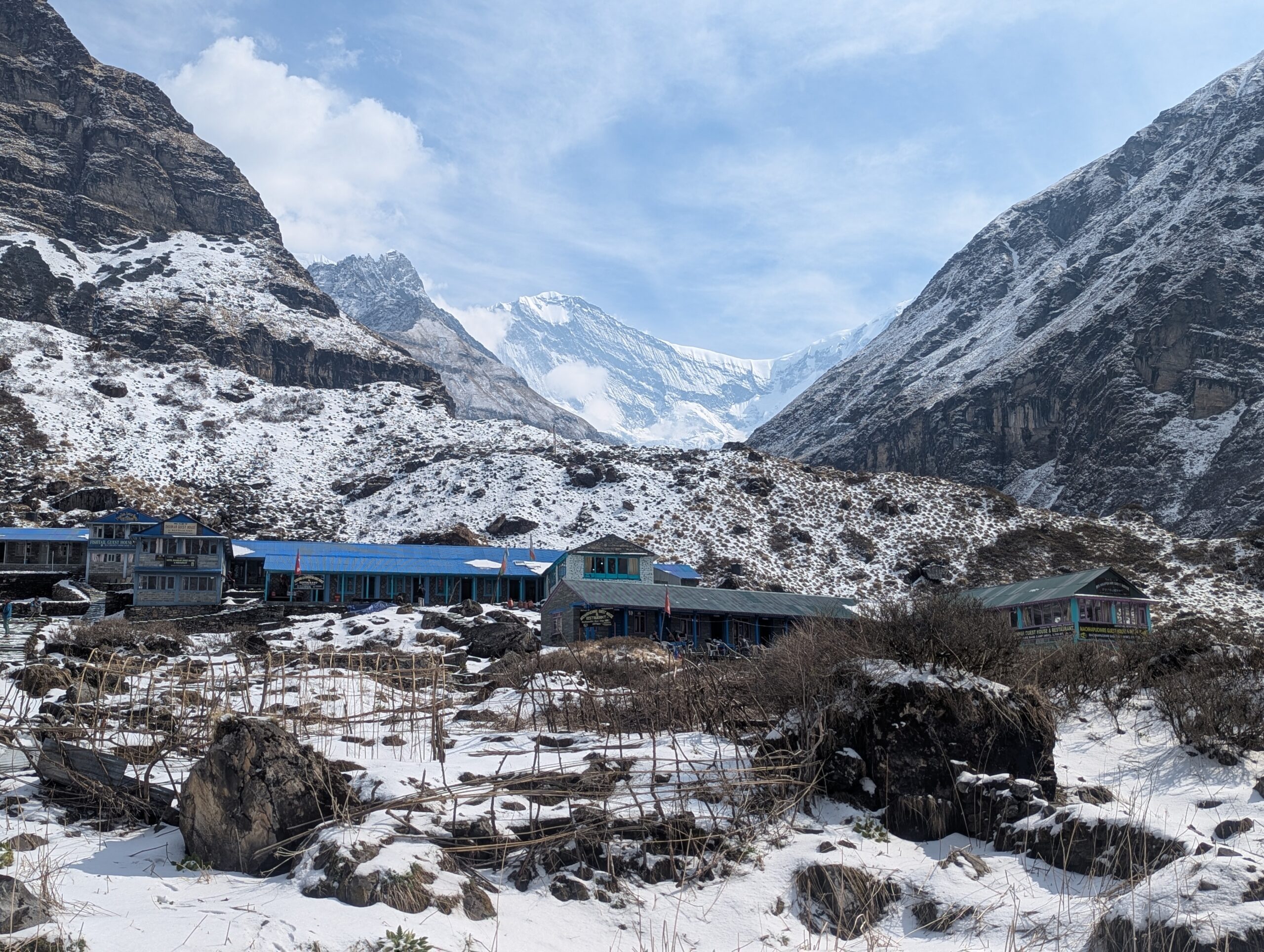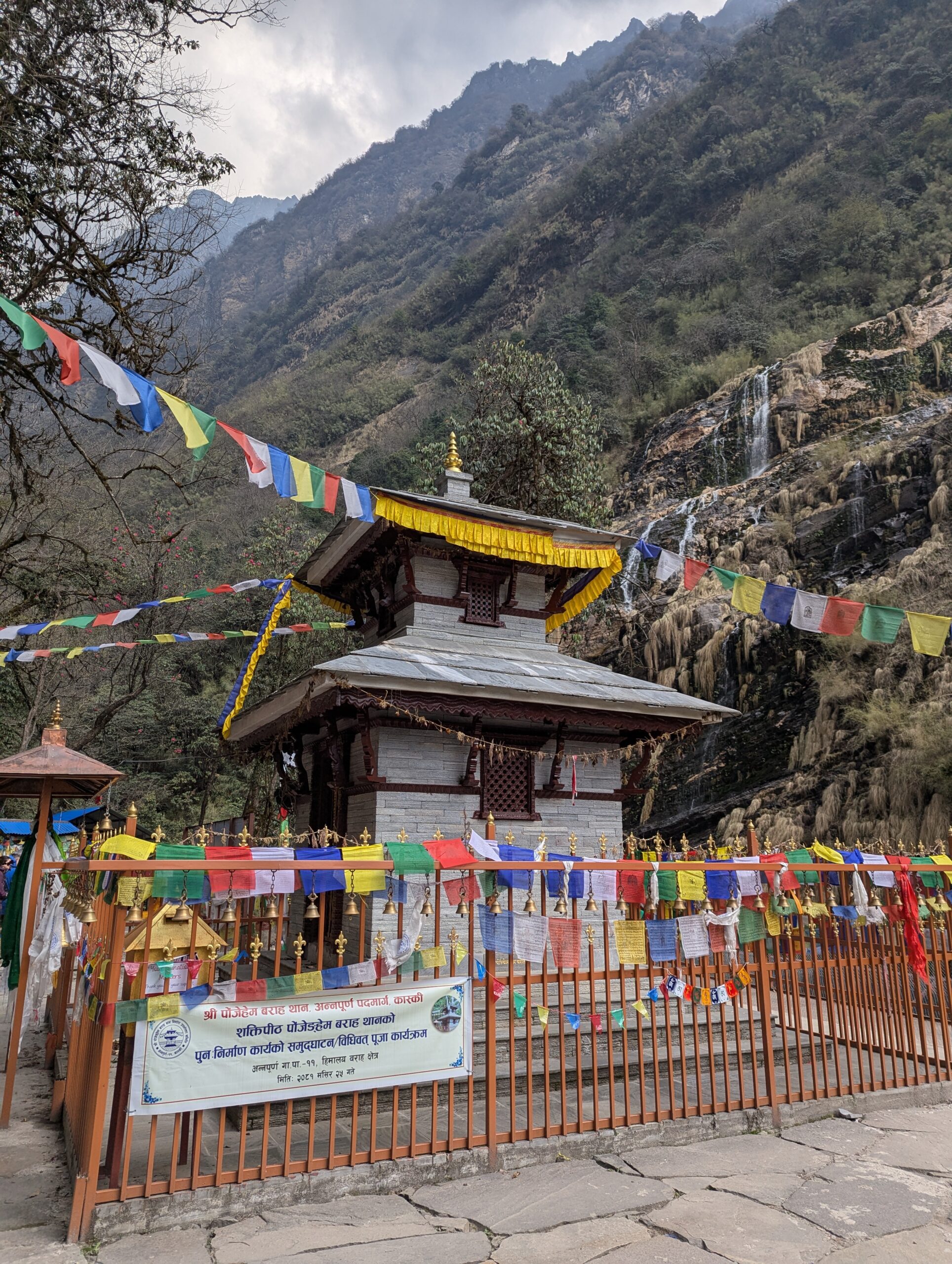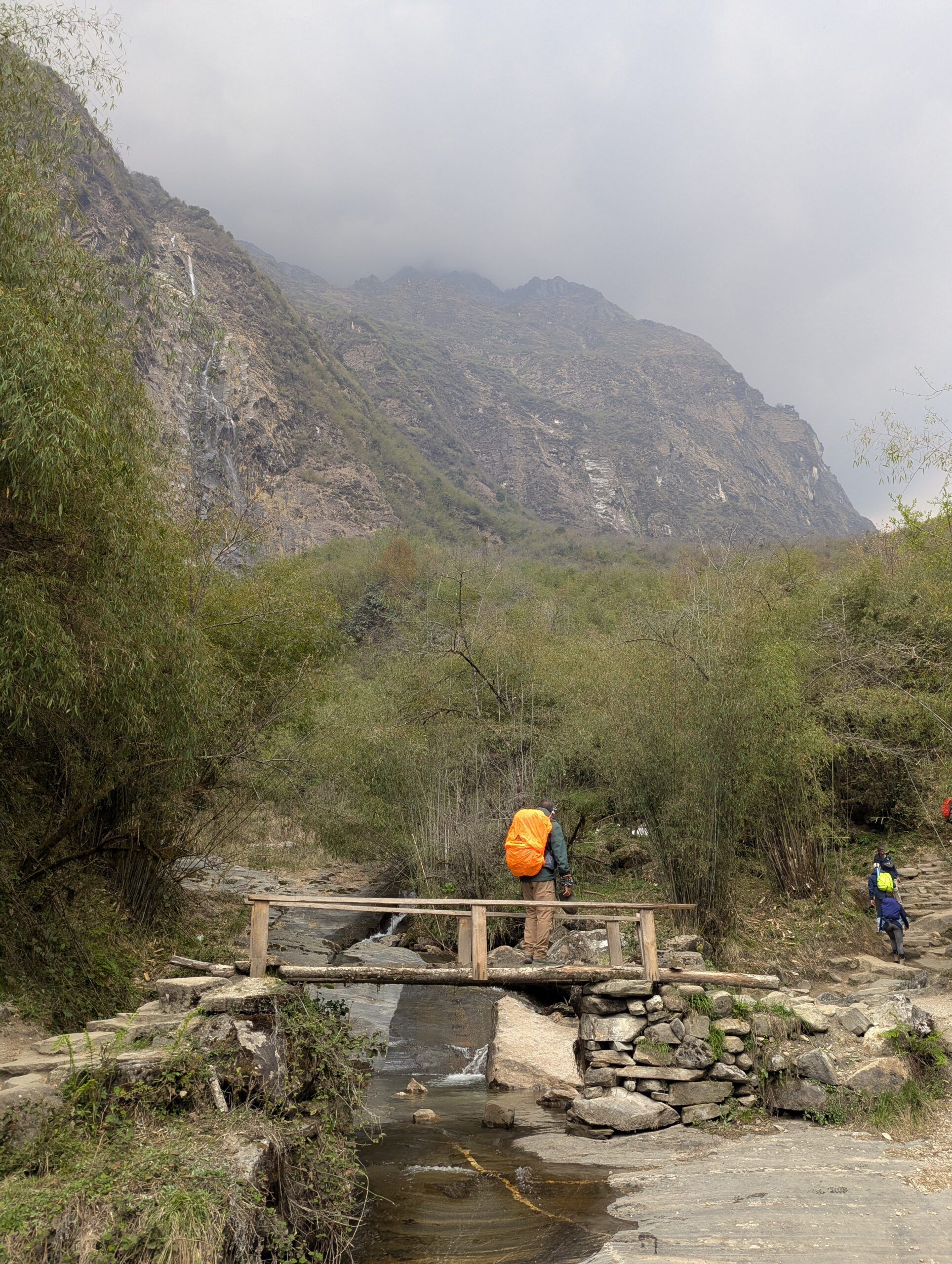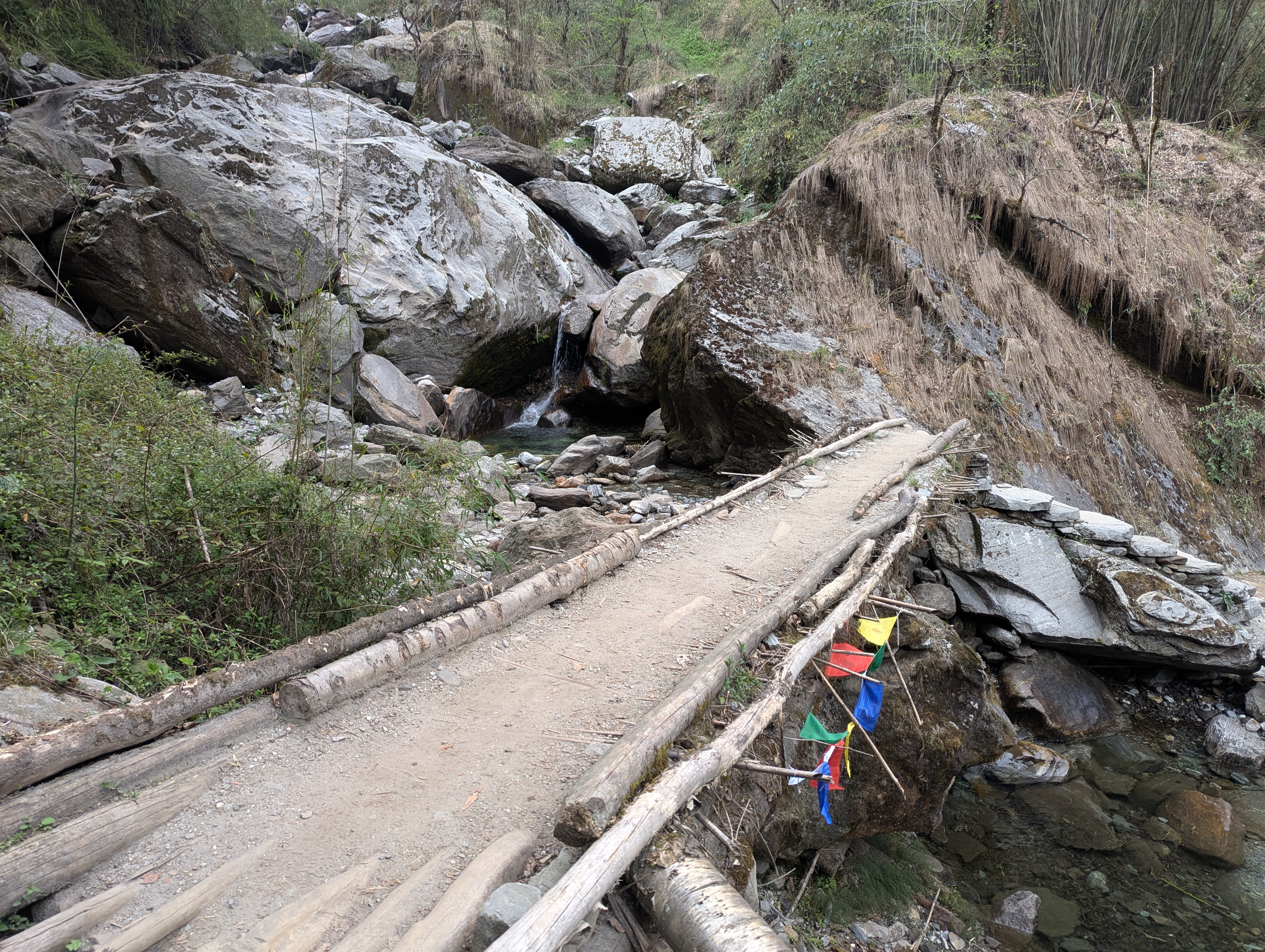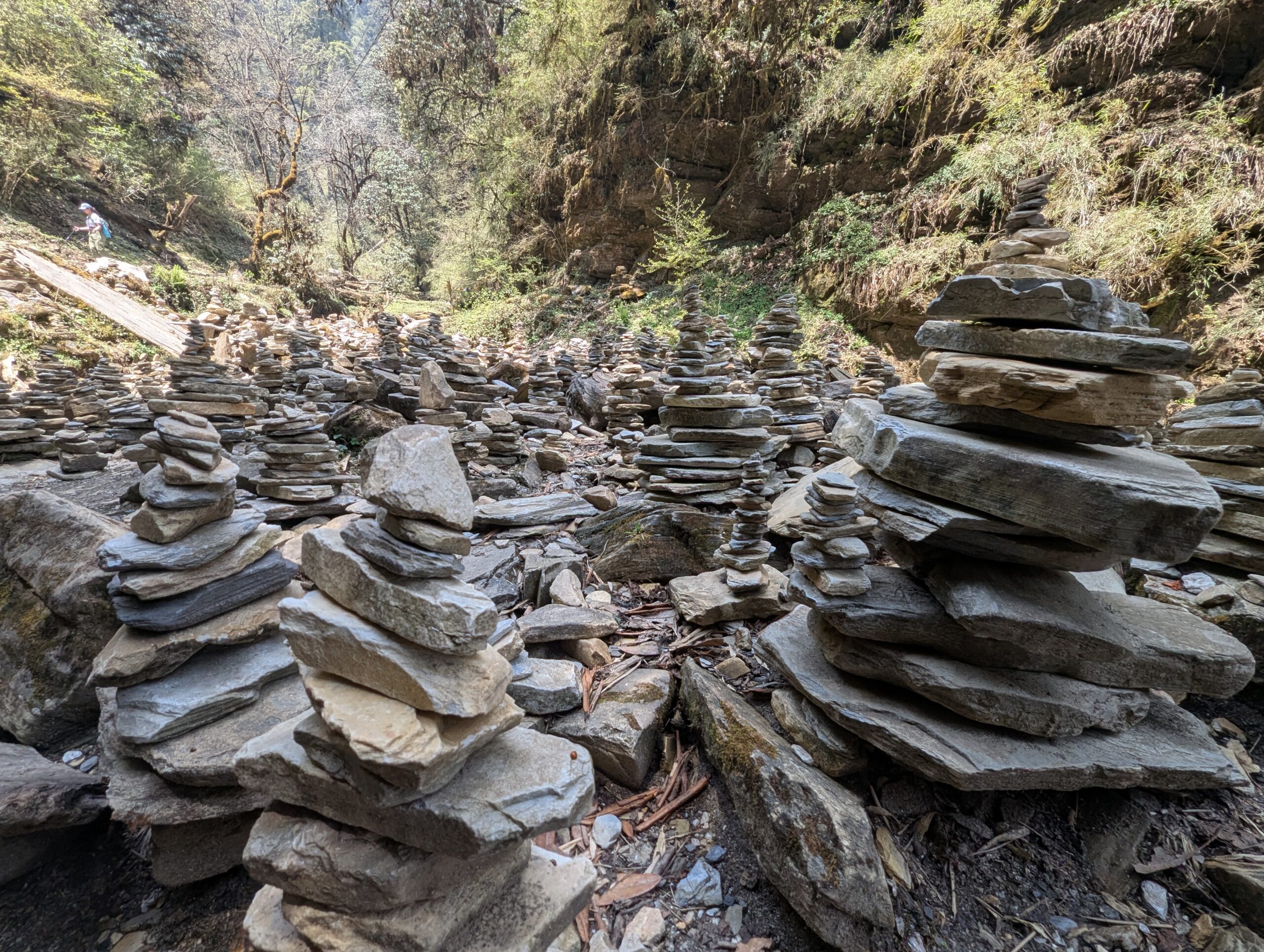Nepal – Annapurna Base Camp (ABC)
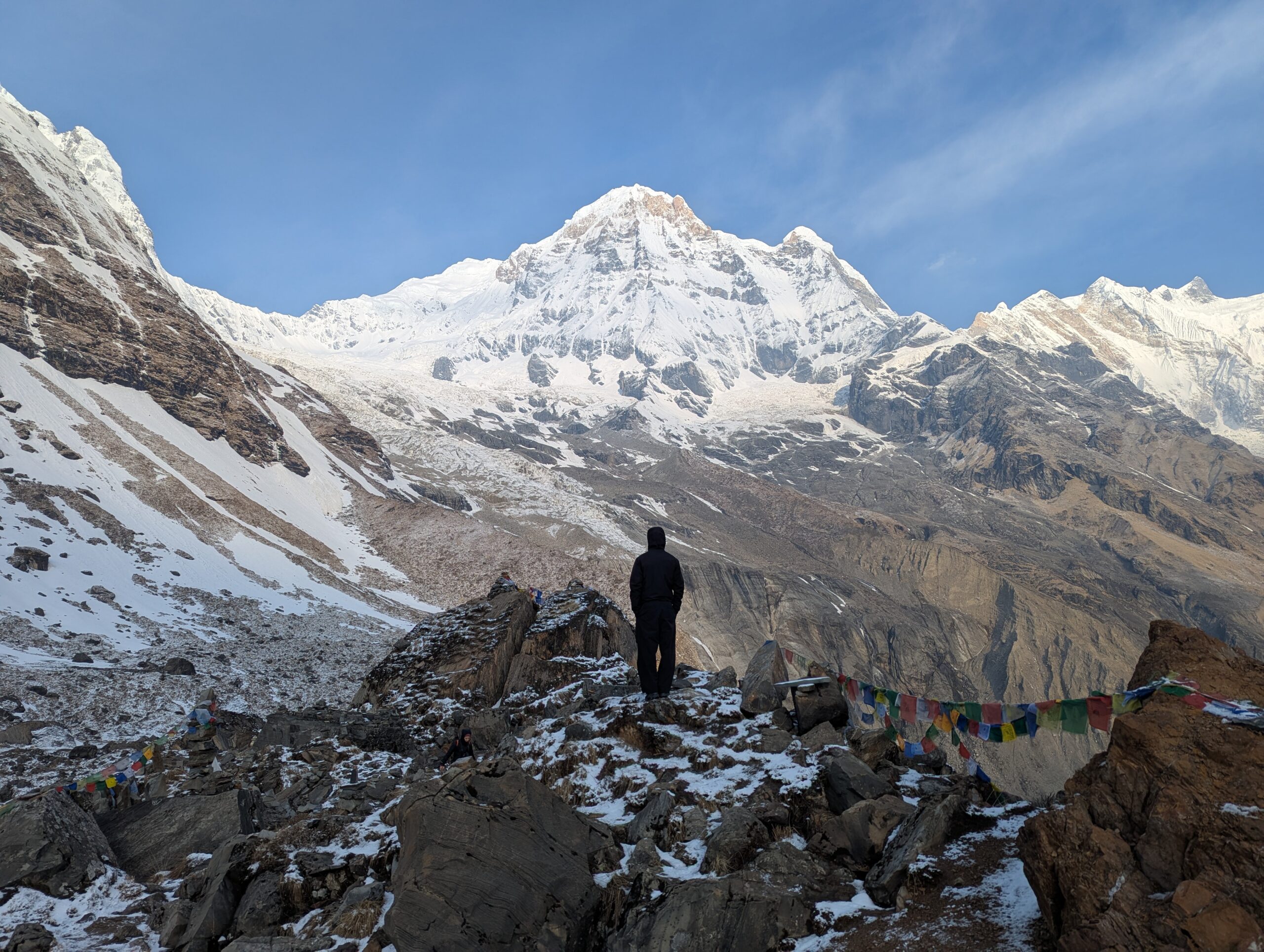
Description
Upcoming Group Trips: –
The scenic Annapurna Base Camp (ABC) trek is one of Nepal’s most popular trekking routes after EBC, offering an immersive journey into the heart of the Annapurna range. The trek begins at Jhinu Danda, near Pokhara, and ascends through diverse landscapes—lush forests, terraced fields, and traditional Gurung villages, and finally to alpine terrain, culminating at Annapurna Base Camp (4,130 meters / 13,550 feet). The base camp is a natural amphitheater surrounded by towering peaks such as Annapurna I (world’s 10th highest peak), Machhapuchare (Fishtail), and Himchuli, offering breathtaking panoramic views.
The trek is moderately challenging, suitable for fit beginners and experienced trekkers alike. While technical climbing skills are not required, altitude acclimatization, steep gradients, unending stone staircases make it a challenging one. Teahouses along the route provide basic lodging and freshly cooked wholesome meals.
The best seasons to trek are spring (March–May) and autumn (September–November), when views are clear and the trails, vibrant. The ABC trek is renowned not only for its natural beauty but also for cultural richness and warm hospitality, making it a memorable Himalayan adventure.
Itinerary
- Day 1Your city - Kathmandu - Pokhara
- Day 2Jhinu Danda - Chhomrong (2210 m) - 2 km, 2 to 3 hour hike
- Day 3Chhomrong to Dovan (2600 m) - 10 km, 6 to 7 hour hike
- Day 4Dovan to Deurali (3230 m) - 6 km, 5 to 6 hour hike
- Day 5Deurali to Annapurna Base Camp (4130 m) - 9 km, 6 to 7 hour hike
- Day 6ABC to Himalaya (2800 m) - 12 km hike, 6 to 7 hours
- Day 7 Himalaya to Chhomrong (2210) - 11 km, 5 hours
- Day 8Chhomrong - Jhinu Danda (1600 m) - 2 km, 1 to 2 hour hike, Jhinu to Pokhara (3-hour drive)
- Day 9Pokhara - Kathmandu - Your city
Inclusions
- 6 nights stay in comfortable teahouses
- 2 night in a comfortable 3-star hotel in Pokhara
- Wholesome meals starting with dinner on Day 1 to breakfast on Day 9 (except lunch on Day 8)
- Domestic flights (for Indians) – Kathmandu – Pokhara – Kathmandu
- Ground transport – airport pickup and drop at Pokhara, Pokhara – Jhinu Danda – Pokhara by a 4WD
- ACAP permit and TIMS
- Porterage – one bag weighing not more than 12 kgs, Jhinu Danda to Jhinu Danda
- Guide charges
- Insurance for staff
FAQ
Do I need a Nepal visa for the trip?
Indian passport holders do not require a visa. You will be able to enter Nepal with a passport or a Voter’s Id (these are the only two id’s that are accepted, Aadhar will not work).
Other passport holders will require a visa to enter Nepal. Visa can be procured on arrival at Kathmandu. If you plan to enter the country through any other border, you will need to apply for an e-visa prior to going to Nepal.
What kind of accommodations are provided during the trek?
The first and the last night will be in a boutique 3-star property in Pokhara. Accommodation will be in teahouses on all the other days.
Will we have proper toilets everywhere during the trek?
The accommodation in Pokhara will have proper attached bathrooms & toilets. Teahouses will only have shared toilets and hot showers
Will hot water for bathing be available at all places?
Hot showers are available all the teahouses. It is chargeable.
Do we have to carry our own luggage?
No, you will only need to carry a backpack in order to carry some water, some eats, personal medicines etc. We will have porters to move your luggage between the stops.
Do all the places where we will be staying have electricity?
Yes, all the places will have electricity (local solar/hydel plants). But please carry a torch or headlamp with extra batteries as there can be outages. Do carry a power bank for charging your phones.
Is water safe to drink in these places?
Water is safe to drink. Boiled, filter water is available at all the stops (chargeable). Please note that bottled water is banned on this route.
You can also carry personal water purifiers (Aquaguard and LifeStraw are two popular brands available online), or water purification tablets.
Do we get mobile connectivity during the trek?
Most of the places except ABC have mobile connectivity. WiFi is available in all the teahouses (chargeable) but may not be 100% reliable.
Should I be worried of altitude sickness?
Yes, ABC is definitely a high-altitude trek where you will be ascending to an altitude of 4130 m. Therefore, it is important to have a good understanding of altitude sickness, the medication to carry etc.
Can the itinerary be customized to reduce the number of day?
Yes, it is possible to reduce the number of days to 7 or 8 if you are experienced trekkers. Have a chat with us if you are looking for a custom itinerary.




